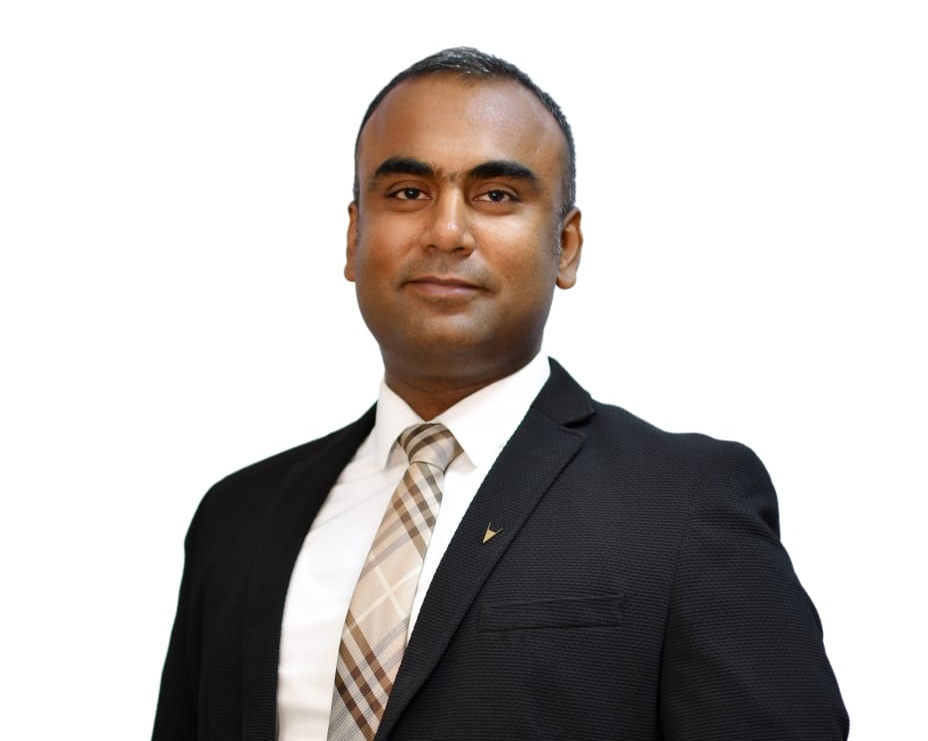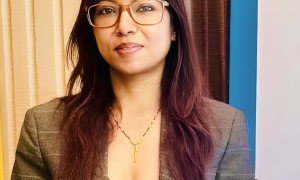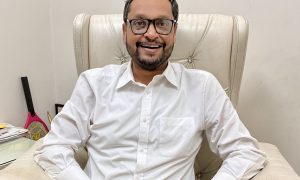This Interview has been published by Pragya Chandni and The SuperLawyer Team

Can you share with us what initially inspired you to pursue a career in law, and how did your journey in the legal field begin?
My father who is a practising lawyer inspired me to become a lawyer. He believed that my analytical skills, command on languages and oratory skills would get me immense success in the legal profession. During my college days I interned with some of the best senior lawyers of the country and was mesmerised by their personalities and their court craft. I aspired to become a senior counsel one day and that’s why I started my career as a litigator. I started my career with my father but shortly thereafter joined the office of a young and successful lawyer in Tis Hazari District court. With my mentor and first boss I got the opportunity to work on some very high stake white collar crimes cases as off-counsels for tier 1 law firms. I was taking up my own matters as well as assisting my senior in his matters. After 4 years of litigation I felt I was stagnated as I had ready playbooks for all kinds of criminal and civil litigation and the cases progressed very slowly. I felt I should expand my horizons and learn a little bit about corporate legal work before I can decide which way to go.
At this time I got the opportunity to work in the legal department of a popular Indian mobile phone company (Micromax) where I got to draft,review and negotiate commercial agreements for the first time. During my two years of working with the said company I learnt immensely about business and the role of lawyers in ensuring good business hygiene. I would work directly with business heads of various departments and get to learn in detail about their respective departments. I understood the scale of legal operations that are there in big corporations and how to manage them using available digital tools. I also learnt how to get things done by making interpersonal bonds with people which I could never learn as a litigation counsel. Later, I started my own boutique law firm with a few of my friends from law college and started providing comprehensive legal services to startups in NCR including disputes resolution, general corporate, M&A, IPR, compliances etc. In the year 2022 I decided to finally start working on my long standing dream of starting my own business in legal-tech space and that’s when i incorporated my own company to develop a B2B legal tech SaaS platform under the brand name “TrueCounsel”
Versatility in Legal Practice:
Legal profession is more art than science and although I do believe in the importance of specialisation, I feel a good lawyer can do anything and everything. Many great lawyers choose to specialise in one area of law but if needed they can take up any kind of challenge. A lawyer who has the capability of representing a client before the Hon’ble Supreme Court of India, can also represent a client in an international arbitration, can also negotiate a high stake deal, can also become a politician, can become a great entrepreneur etc. The level of preparedness, meticulousness, foresightedness and oratory skills that are expected of lawyers, make us ready to take any challenges head-on and with ease. We are mostly performing and at best of our behaviour be it before a court or in a virtual meeting or even when casually meeting anyone in our social circle.
You have expertise in both litigation and corporate legal work. How did you find yourself navigating both these aspects of law, and which area do you find more challenging or rewarding?
I find myself navigating between all aspects of law quite smoothly. I believe good research is the key to do well in any area of law or business or technology. I like to take on challenging problems and solve them by sheer hard work. All areas of law are equally challenging and rewarding in my experience and I feel that I thrive under pressure. Whenever I feel that I have become comfortable and bored, I try to take on a new and bigger challenge for myself. Presently I am focussed on learning how to mentor and train the young generation of lawyers which is very different from my generation and becoming a good leader. Also I am facing the challenges of being a tech founder and running a highly competitive business which is very different from being a lawyer.
You mention a strong aptitude for managing large volumes of corporate disputes using the latest technology. How has technology played a role in your legal practice, and how do you see it shaping the future of dispute resolution?
The first time I started managing huge volumes of agreements, consumer disputes and recovery matters as an in-house legal counsel, I realised this was completely different from being a litigator. This was the first time I used Microsoft Excel with the help of my boss and second mentor who is also a Chartered Accountant. I understood the importance of using digital tools effectively in order to manage large volumes of data. I had been using technology for legal research during my litigation days already along with OCR tools for extracting data easily for drafting but beyond that I did not know much about the need of tech in the legal profession. This was the time when companies such as ProVakil, Vakilsearch, MyAdvo, Mikelegal etc. had also come up with the objective of solving major pain points in the legal industry using technology. These companies provided solutions for easy discovery of legal professionals, contracts workflow management, automatic updates on court cases, enforcement of IPR etc. This caught my interest immensely as I could see that any problem can be solved using technology and that India is booming with a tech workforce which can create any kind of tech very fast. During the Covid times, the necessity for incorporating tech in legal practice got highlighted and we saw fast advancement in this direction.
I feel that increased technological advancement in legal practice will create better opportunities for young lawyers, will lead to increased transparency, lower rates of disputes, faster dispute resolution, standardisation of legal fees and overall improvement of the legal system which directly impacts ease of business.
Could you share one or two experiences representing clients in high-stakes disputes that have left a lasting impact on your approach to legal representation?
During my initial litigation days and also when I was working as an in-house counsel, I got to work on some very high stake disputes involving foreign entities. I got the opportunity to work with foreign lawyers and I was highly inspired by their inquisitive approach towards understanding Indian law. I drafted memos and legal opinions which were then vetted by tier-1 Indian law firms and finally shared with these foreign lawyers and that taught me how to appreciate law from an outsider’s perspective. I became more critical and inquisitive about statutes and legal provisions. Also I learned the importance of strategising in detail at the very commencement of a dispute and factoring in all possible outcomes of every step well in advance so that you are never caught by surprise. It also taught me how to manage voluminous documents and data effectively in order to succeed in any dispute because more than law, the facts make or break a case.
Moving on to your current role as a Partner at Ortis Law Offices, what prompted this transition, and how has this role differed from your previous experiences?
When I merged my law firm with Ortis Law offices, I made a hard decision to stop doing everything and focus completely on corporate legal work. This decision was prompted by the need for specialisation. I had been doing everything that would come to me and even actively generating work in all possible directions but I realised that although this keeps me motivated, it is not very effective in many ways. I realised that once you have more than 10 years of experience, you must pick an area of law and focus completely on it while generating other work for your partners in the law firm. This creates a good structural foundation for scaling up your legal practice. At Ortis Law Offices I learnt how to be a good mentor and senior. Earlier I would expect a bit too much from my juniors and as a result would become very frustrated with them. This led to low motivation and a toxic environment in my team but my senior partners at Ortis Law Offices taught me how to keep your team happy and motivated and give them space to blossom. Also, while working with other partners at the firm I learnt a lot more about working with MNCs and big clients than I had in my earlier experience.
You’ve been involved in various acquisitions, funding rounds, and legal proceedings. Could you highlight a recent case or advisory role that stands out to you and share some key lessons or insights gained from it?
Recently I worked on the acquisition of a company undergoing financial distress wherein I had to represent the said company and its founders. At the same time I had to negotiate settlements with the creditors of the company. This was a very stressful and hectic project wherein I learned how to keep calm and stand your ground under tremendous pressure while representing the losing side in a transaction.
As someone with over a decade of experience in the legal field, what advice would you give to law students or recent graduates who are starting their careers in law? What lessons have you learned that you believe would be valuable for them?
My only advice to young law students and lawyers is to do as much freelance work as possible. I believe that while working with seniors or in a law firm structure or as an in-house lawyer one tends to have huge scope for error and a lot of cushion but when you freelance you are directly answerable to the client which teaches you professionalism at a whole different level. It teaches you how to value their time and provide the highest quality of services that you can.
Another important advice is that you must keep adding skills in your arsenal. The moment you stop updating your skills you become obsolete and redundant. I recommend that the young lawyers should use as much technology as possible while doing their research, drafting or any other work to increase efficiency and quality of their product and keep a lookout for the latest advancements in legal tech.
Get in touch with Saurabh Bhardwaj-

























